

Dear Friends,



Dear Friends,
Thanks to your generosity and dedication to dogs, the AKC Canine Health Foundation is celebrating 30 years of progress in canine health research. Your support drives our work, and I am proud to share the momentum we’re building as we begin a bold new chapter in our mission to advance the health of all dogs.
Over the past few months, our team has been reimagining how we share this mission with you. We’re excited to present you with a new, expanded Discoveries. This version provides a closer look at the progress, innovation, and passion driving our work, presented in a more engaging and accessible format.
Inside, you’ll find more stories, insights, and updates that highlight the dedication of those working to improve canine health. We hope you feel even more connected to the impact you’re making possible.
This spring, we’re also proud to unveil our redesigned website. On this revamped site, you will easily explore research updates, access educational resources, and stay connected with the progress you make possible.
On behalf of the entire CHF team, the dogs, and the families we serve – thank you. Every discovery is a step forward for the dogs who share our lives and fill our hearts.
With heartfelt gratitude,
Stephanie Montgomery DVM, PhD, DACVP
5 6 8 8 9 10 11 12 3
A New Chapter in the Fight Against Canine Hemangiosarcoma
Welcome New CHF Board Members
A Future of Personalized Care for Drug-Resistant Epilepsy
Canine Health Conference Preview
Purina Parent Club Partnership Program
Tar Heel 10 Miler
Race Results
Beyond Kennel Cough: A Mystery Illness Emerges in Dogs
Active Grant Highlights
Vizsla Club of America
Welfare Foundation
Where to Find Us:
Irish Setter Club of America National Specialty
Virginia Beach, VA May 13-15
ACVIM Forum Louisville, KY
June 19-20
Columbia Terrier Association of Maryland, Frederick, MD
July 24

By Andrea Fiumefreddo
Hemangiosarcoma is one of the most devastating cancers in dogs, often progressing silently until a sudden medical emergency reveals its presence. This aggressive cancer originates in the cells that form blood vessels and typically takes hold in organs like the spleen or heart. In many cases, the first sign is a sudden collapse caused by internal bleeding when a tumor ruptures – leaving pet owners and veterinarians with mere moments to act.
Not every mass in the spleen is cancerous, but in an emergency, decisions must be made before the full diagnosis is known. Fortunately, recent findings are giving dog owners more reason to
hope. A growing body of research suggests that 95% of dogs undergoing surgery for a bleeding splenic mass recover enough to go home within 48 hours. Even more encouraging: nearly half of those masses turn out to be benign, meaning no additional cancer treatment is needed. These updated statistics offer a more optimistic outlook than older data suggested, and support emergency surgery as a reasonable choice – even for senior, large-breed dogs.
“We’ve uncovered insights that wouldn’t have been possible through retrospective analysis,” says Dr. Chand Khanna, President of Ethos Discovery and a leading scientist supported by the AKC Canine Health Foundation. His team’s prospective research – tracking cases in real time –has revealed that canine hemangiosarcoma is more complex and less understood than previously believed.
One of Dr. Khanna’s key discoveries is that hemangiosarcoma isn’t a single disease but a group of biologically distinct cancers. His team has identified at least four molecular subtypes of the disease to make it more easily understood:
1. Inflammatory subtype, involves an active immune system and inflammation.
2. Vascular subtype, characterized by rapid growth of blood vessels and signals promoting their growth.
3. Apidogenic subtype, linked to genes involved in fat storage and metabolism.
4. Myoid subtype, involving gene activity related to muscles.
This work reflects a shared commitment between Ethos Discovery and the AKC Canine Health Foundation.
Some tumors may even contain a mix of these subtypes within a single dog. This variation likely explains why conventional, one-size-fits-all treatments have had limited success.
To find better answers, Dr. Khanna’s team is leading a nationwide clinical trial with over 450 canine participants. Dogs diagnosed with hemangiosarcoma are randomly assigned to one of four targeted therapies – each chosen based on what’s known about the underlying biology of these subtypes. None of the trial drugs are standard chemotherapy agents; they
were selected specifically to match the unique characteristics of these molecular profiles.
In addition, researchers are exploring biomarkers that may predict how a tumor will behave or respond to treatment. Their ultimate goal is to fast-track the development of more effective therapies and improve survival outcomes.
“This work reflects a shared commitment between Ethos Discovery and the AKC Canine Health Foundation,” says Dr. Khanna. “We’re both determined to push the boundaries of what’s possible for dogs with this devastating disease.”
Thanks to bold science and the generosity of CHF supporters, a brighter future is emerging for dogs diagnosed with hemangiosarcoma. To learn more or support this work, visit akcchf.org/ hemangiosarcoma.

Please join the AKC Canine Health Foundation in the fight against canine cancer Since 1995, CHF has led the way in funding studies to improve detection, treatment, and outcomes for dogs facing cancer. Learn more at akcchf.org/caninecancer. May is Canine
Your front row seat to the future of dog health. Explore cutting-edge canine health research with experts in every webinar. For
This year we are excited to welcome four dedicated advocates for canine health to our Board of Directors. They are dog lovers, non-profit leaders and internationally renowned veterinarians. Please join us in extending a warm welcome to Sally, Valeria, Chris, and Cynthia.
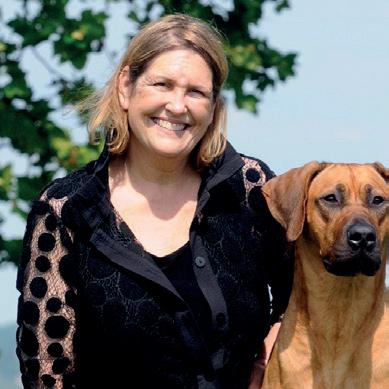
Sally Fineburg is a current member of the American Kennel Club’s Board of Directors and the AKC Delegate for the Hatboro Dog Club. She is also a preservationist breeder, owner, and exhibitor of top-ranked Ridgebacks in Conformation, Performance and Companion events for more than two decades, and co-owns multiple Norwich Terriers. Professionally, Sally is an owner and Vice President of a third-generation, family-owned and operated, petroleum company in New Jersey.
Valeria Rickard, DVM, is the founder and owner of the North Oatlands Animal Hospital and Reproduction Center in Leesburg, Virginia and the Dominion Valley Animal Hospital in Haymarket, Virginia. Dr. Rickard is a highly experienced surgeon, specializing in minimally invasive laparoscopic and laser surgeries. She is known worldwide for her expertise in canine reproduction and pediatrics.
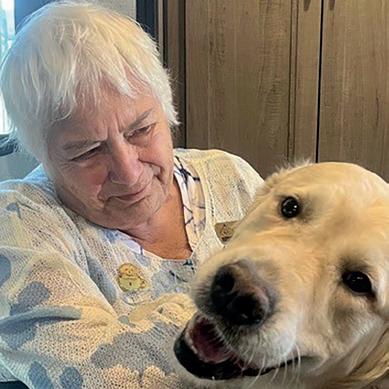

Chris Miele has been passionate about Golden Retrievers for nearly 50 years and currently serves as President of the Golden Retriever Foundation. She views it an honor to give back to the breed she loves and to establish programs that enrich the lives of the dogs and their owners.
Cynthia Sansone brings over 20 years of experience in the world of purebred dogs, with a background as an owner, breeder, and exhibitor in conformation. She and her husband, Steven, currently raise and compete in rally events with their Long Grove Kennel Giant Schnauzers. In addition to her involvement with dogs, Cynthia actively competes in dressage with her Hanoverian horse, Accordingly. She serves as a Director and Treasurer of the Morris & Essex Kennel Club and is also a member of the Kennel Club of Philadelphia.

CHF is excited to welcome these four new Board Members whose extensive expertise and diverse backgrounds will help us build a healthier future for all dogs.

Scientists seek early biomarkers to guide more effective epilepsy treatment in dogs.
By Trent Brown
Idiopathic epilepsy is defined as recurrent seizures without an identifiable systemic illness or structural cause within the brain. It is widely believed to have a genetic basis and is the most common type of epilepsy in dogs, affecting millions across the world.
Identifying and managing epilepsy in dogs is often a long and complicated process. Since diagnosing and monitoring epilepsy depend so much on an owner’s time and ability to observe and record their dog’s seizures, important details can
easily go unobserved. As a result, these gaps in information can make it harder to fully understand a dog’s disease.
Finding the right treatment plan and appropriate drug dosage for each individual dog takes time and involves a number of clinical assessments and a series of blood tests. Current treatment is limited to anti-epileptic drugs (AEDs), such as phenobarbital, potassium bromide, levetiracetam and zonisamide. These drugs all have shown efficacy in treating epilepsy but may have
30% of all dogs with idiopathic epilepsy are resistant to medical drug therapy.
mild-to-severe side effects such as sedation, incoordination, increased appetite, and excessive water consumption. For about a third of dogs with idiopathic epilepsy, long-term control requires lifelong treatment with two or more of these drugs.
To complicate matters further, roughly a third of dogs with idiopathic epilepsy will develop drug-resistant disease, presenting even greater challenges when it comes to selecting the right medications and dosing strategies.
Drug-resistant epilepsy is diagnosed when seizures persist despite treatment with two appropriate AEDs. In some cases, it can be managed by the addition of second or third generation drugs, but for many dogs, seizure control remains elusive. Other dogs may experience side effects so severe that quality of life is significantly diminished, both for the dog and family who cares for them.
“The more medication is used, the higher the burden for the patient in terms of side effects and quality of life and for their owners in terms of financial burden and quality of life as well,” explained study sponsor Thomas Parmentier, DVM, PhD, DACVIM-Neurology, at the Université de Montréal.
Dr. Parmentier aims to make lasting change for these dogs by developing more targeted assessments that will minimize the time spent on repeated clinical evaluations and failed treatments, leading to better outcomes for the dog, the owner, and their veterinary team.
“When a dog is diagnosed with idiopathic epilepsy, owners are presented with the following information: ‘We don’t know what drug is best to use to control the epilepsy of this specific patient, which means that they will go through trial and errors to figure out which is the best drug or combination of drugs,’” said Dr. Parmentier.

To change that, his team is working to identify and validate a combination of clinical features and biomarkers to predict potential drug resistance in newly diagnosed dogs.
These potential biomarkers include electrical patterns of a dog’s brain (recorded with a noninvasive technique called electroencephalography) and in their blood (specific molecules called microRNA). By using these tools to estimate the likelihood of drug resistance, Dr. Parmentier and his colleagues hope to lay the groundwork for a novel, more individualized approach to managing canine epilepsy - one that could offer better outcomes from the beginning.
“If we have this information right at the onset of epilepsy in these patients,” Dr. Parmentier said. “We could better address this difficult medical condition right from the start.”
Registration is now open for the AKC Canine Health Foundation’s (CHF) 2025 National Parent Club Canine Health Conference. For the first time, this biennial event will be held in North Carolina–a fitting tribute as we celebrate CHF’s 30th anniversary near its national headquarters.
Join us August 7-9, 2025, at the beautiful Washington Duke Inn in Durham, and take part in an experience designed for breeders, veterinary team members, researchers, and dog lovers dedicated to advancing canine health. Attend in person or virtually and gain access to the latest CHF-funded research and highlights.
What to Expect:
• Presentations that address important canine health issues like emerging diseases making news-worthy headlines, keeping active dogs healthy, exploring how form and function impact vitality, and examining how advances in human medicine can inform canine care.
• More opportunities to network with fellow attendees invested in canine health.
• A celebration of three decades of progress in canine health research.
Since 2002, the Purina Parent Club Partnership (PPCP) Program has united Purina®, AKC Parent Clubs, and the AKC Canine Health Foundation in a shared mission: to advance the health and wellbeing of dogs.
Through this unique program, Purina Pro Club® members earn Purina Points by purchasing qualifying Purina pet foods and submitting proofs of purchase. Based on the accrual of these points, Purina makes an annual donation split between each participant’s designated AKC Parent Club and its Donor Advised Fund held at CHF.

Date: August 7-9, 2025 (Thursday - Saturday)
Location: Washington Duke Inn 3001 Cameron Boulevard Durham, NC 27705
Shuttles to/from RDU airport will be available.
Learn more and register: akcchf.org/NPCCHC
This program has been submitted for RACE approval (but is not yet approved) for continuing education credit in jurisdictions that recognize RACE approval. The 2023 conference was approved for 13.75 hours of continuing education credit.
The impact is significant. To date, PPCP has provided more than $9 million in support of canine health research, breed rescue, and education. In 2024 alone, PPCP participants generated $95,973 to advance CHF-funded canine health research!
We’re grateful to Purina and the many dedicated Parent Club members who make this possible. Together, we’re fueling health discoveries that benefit all dogs.
Learn more at akcchf.org/ppcp.

By Trent Brown
In April, the AKC Canine Health Foundation was honored to be the official charity beneficiary of one of North Carolina’s largest community running events – the Tar Heel 10 Miler. To mark the occasion, CHF formed a dedicated fundraising team of runners, affectionately known as CHF FundRACERS.
Each FundRACER committed not only to completing the race, but also to raising funds in support of canine health. Running on behalf of all dogs, they stepped up, trained, and crossed the finish line with purpose. For these runners, the race wasn’t just about miles – it was about joining together with others in the community to make a meaningful difference in the lives of the dogs.
The commitment and passion of the CHF fundraising team and staff paid off! The Tar Heel 10 Miler was CHF’s FIRST EVER charity-racing event and the Foundation’s 10 runners – cheered on by dozens of supporters – proudly raised over $7,000!
“It was so fun to run alongside such an inspiring group,” said Paige Hofstad, one of CHF’s very own staff members, and the first FundRACER. “It is amazing how much we can accomplish together for the love of dogs. I’m already looking forward to lacing up again next year and to seeing what innovation and discoveries these donations lead to.”

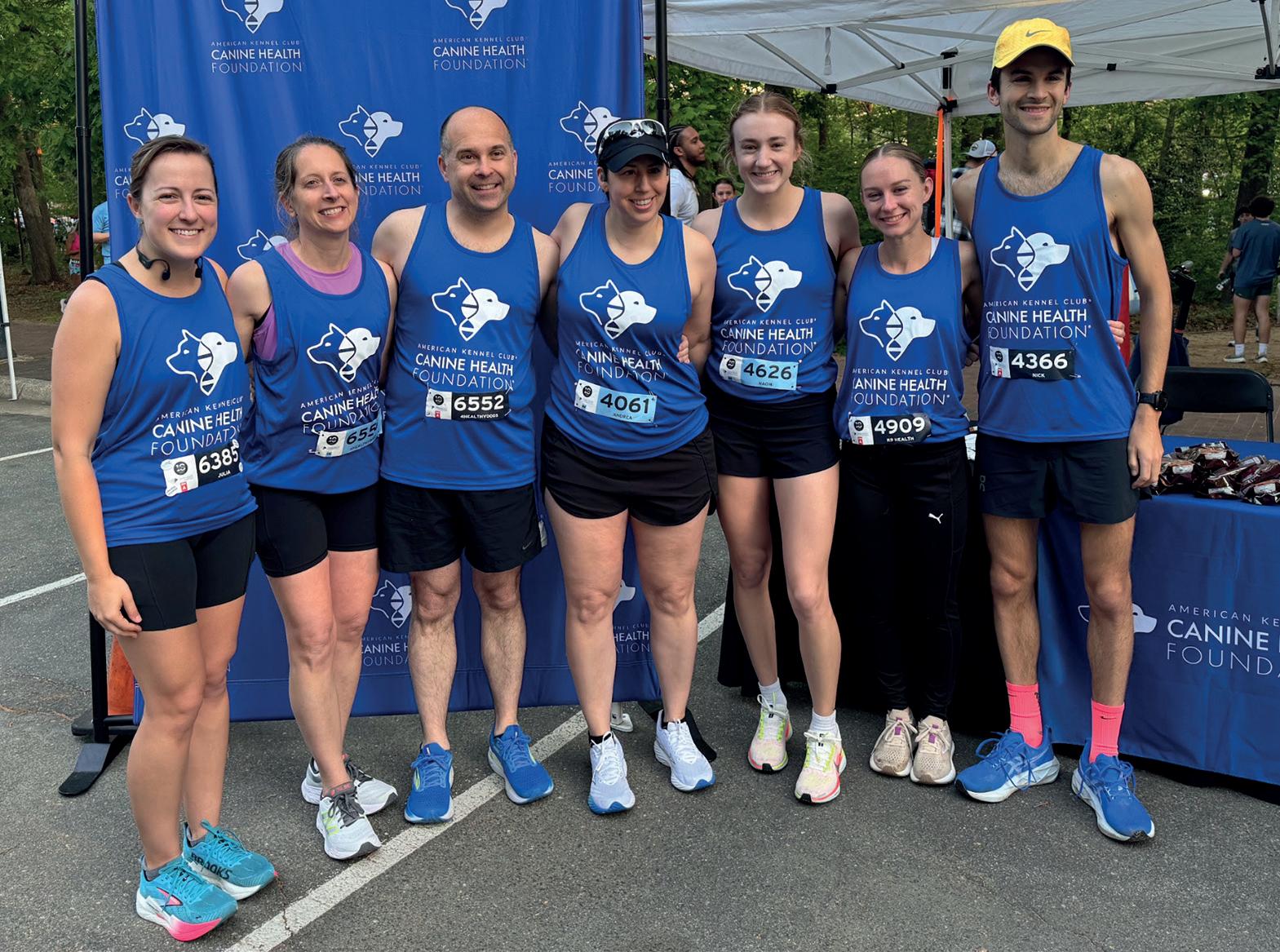
CHF would like to give a special thanks to Helen Groce and BISS GCHS Bory Wood Xavier Xavier is not only a national champion, he was CHF’s champion mascot for the day, cheering on the runners and taking photos with anyone and everyone during race-packet pick-up.
P.S. To join or support the CHF FundRACERS check out upcoming events at ackchf.org/get-involved.


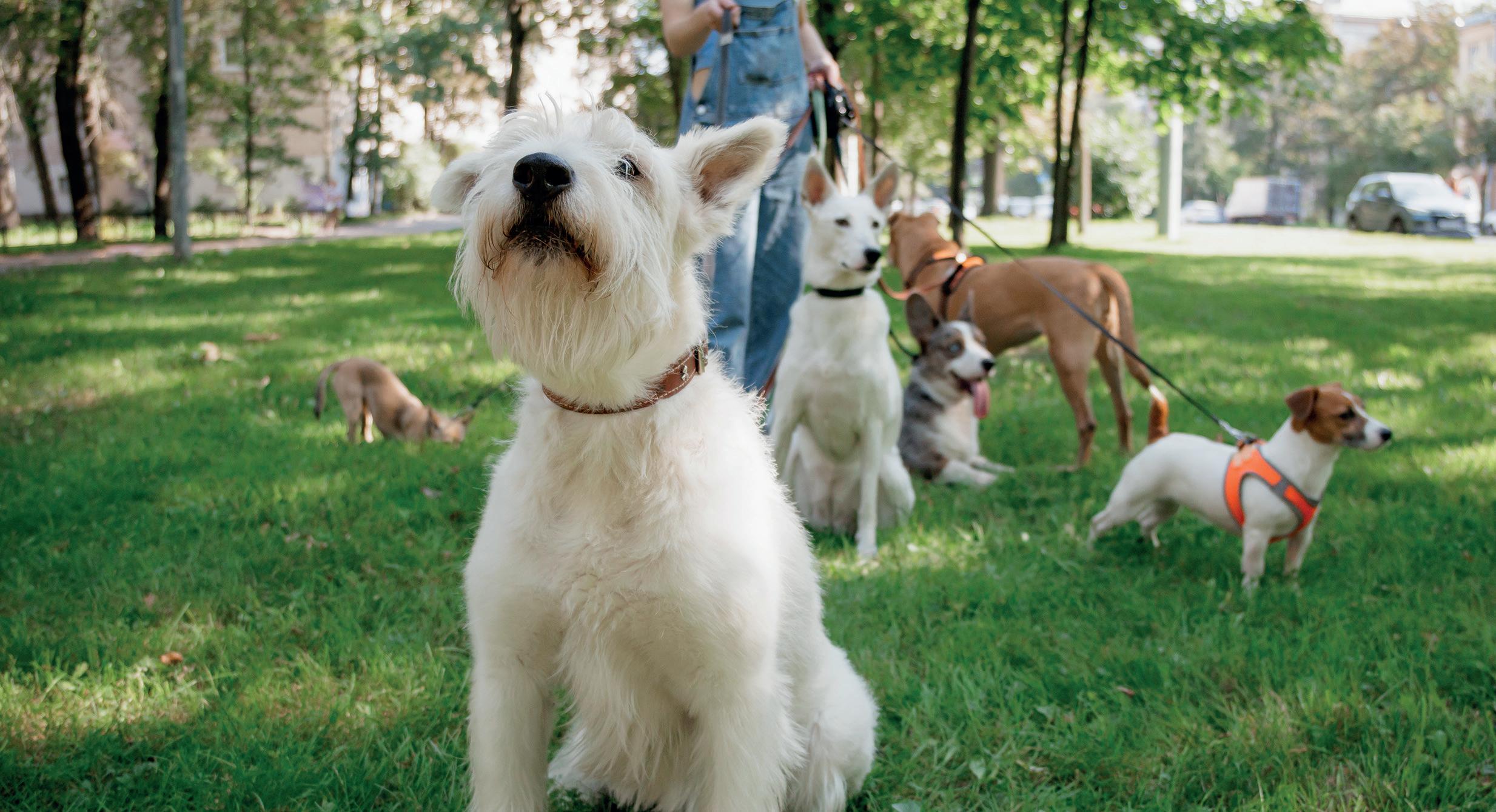
When standard treatments stop working, scientists start digging. Here’s what they’ve found so far.
By Stephanie Montgomery, DVM, PhD, DACVP
As cases of canine respiratory illness rise, researchers are uncovering a previously unknown bacterium that could change the way we approach and treat this disease in dogs. Canine Infectious Respiratory Disease Complex (CIRD), often called “kennel cough,” has long concerned dog owners and vets. Usually, it’s mild and only lasts a week or two. More recently, dogs across the country have experienced a similar illness but with prolonged symptoms of persistent cough, extreme fatigue, nasal discharge, and, in some cases, pneumonia. Though this atypical illness is rarely fatal, it often resists standard treatments, pointing to the possibility of a new pathogen.
To investigate, Dr. David Needle, a veterinary pathologist at the University of New Hampshire and the New Hampshire Veterinary Diagnostic Laboratory, began collecting nasal and throat swabs from sick dogs nationwide. With help from the Hubbard Center for Genome Studies, his
team used advanced sequencing to search for familiar microbes only to find something entirely unexpected.
The team discovered genetic material from a previously uncharacterized bacterium not found in current diagnostic databases. It shares traits with Mycoplasma spp. – a group of bacteria known for lacking a cell wall and being especially tough to culture in the laboratory. It also has a remarkably small genome with a high proportion of adenine and thymine, making it hard to detect using standard laboratory methods. These features suggest it could have gone unnoticed in dogs until now.
To explore this further, Dr. Needle secured a research grant of over $300,000 from the AKC Canine Health Foundation. His team is now using metagenomics – a technique that analyzes all genetic material in a sample without the need
to grow microbes. This method is critical for identifying hard-to-detect pathogens like this one.
Key findings include:
1. It’s newly discovered. A unique genome segment linked to the illness wasn’t found in samples collected before 2018, suggesting recent emergence.
2. It’s widespread. Cases have appeared in New Hampshire, Oregon, Rhode Island, Connecticut, and possibly other states, demonstrating it’s not isolated.
3. It may contribute to chronic illness. Though not confirmed as the sole cause of illness, the bacterium appears often in dogs with prolonged symptoms – and not in healthy dogs.
4. It evades standard tests. Its structure and genome make it hard to culture, underscoring the importance of metagenomics in identifying it.
These early findings are a breakthrough. Understanding this potential new pathogen could improve diagnostics and ultimately lead to better treatments.
Until more is known, Dr. Needle advises caution and continued surveillance. Transmission of respiratory pathogens like this one occurs in crowded places like daycares, dog shows, boarding facilities, and dog parks. Dog owners should keep vaccinations current and avoid high-risk environments during outbreaks, especially if their dog is immunocompromised or older, as these dogs may be at higher risk for complications. At the first sign of respiratory illness, it’s important to consult your veterinarian.
Thanks to generous support from the Kennel Club of Philadelphia, the Golden Retriever Foundation, the Irish Setter Club of America Foundation, and other breed organizations, the AKC Canine Health Foundation quickly responded to this emerging threat with essential research funding. The work is progressing rapidly, and with continued help from scientists, veterinarians, and dog lovers, we can identify the cause and protect canine health. Learn more or support the effort at akcchf.org.
Grant 03339: The Role of Select Enteric Bacteria in Dogs with Immune-Mediated Hemolytic Anemia
Principal Investigator: Michael R Lappin, DVM, PhD, DACVIM; Colorado State University
Some dogs develop immune-mediated hemolytic anemia (IMHA), a serious disease where the immune system destroys red blood cells. With a goal of improving treatment, this study explores whether gut bacteria in the bloodstream trigger IMHA and how the immune system responds.
Grant 03387-A: Does Luteinizing Hormone Receptor Activation Interfere with Canine Thyroid Hormone Secretion in Response to Thyroid Stimulating Hormone In Vitro?
Principal Investigator: Michelle Kutzler, DVM, PhD, MBA; Oregon State University
Hypothyroidism in dogs can lead to weight gain, low energy, and skin problems. This study explores how increased luteinizing hormone after spay or neuter surgery may affect thyroid function, aiming to uncover mechanisms to prevent disease.
Grant 03293: Foundational Studies for Translating Fibroblast Growth Receptor Factor Inhibition in Canine Osteosarcoma –Targeting Bone Cancer at Its Roots
Principal Investigator: Marcella Massimini, PhD; University of Teramo Bone cancer in dogs spreads quickly, causing pain and leading to death. This study builds on advances in human cancer therapies to find proteins that drive its spread. Using 3D models and canine cancer cells, researchers are testing targeted drugs to develop more personalized, effective treatments for dogs.
See our full research grants directory at akcchf.org/research.
Donor Spotlight health study revealed that an alarming number of Vizslas were diagnosed with hemangiosarcoma, VCA WF launched its “Beat Hemangiosarcoma! Challenge Campaign” to fund AKC Canine Health Foundation-supported studies. In under a month, the Vizsla community exceeded their goal by raising $50,000 for this critical research.
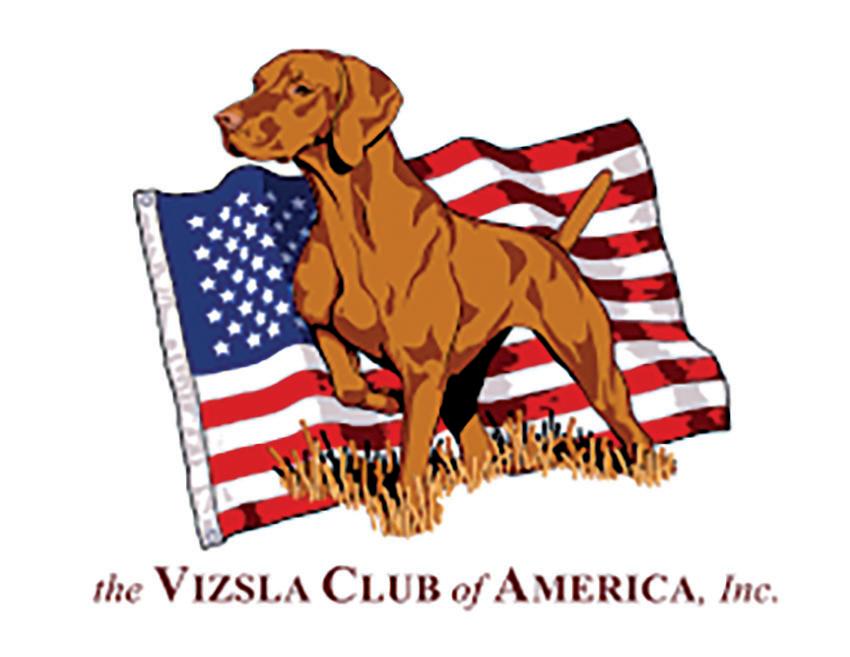
The Vizsla Club of America Welfare Foundation (VCA WF) exemplifies dedication to canine health. Since its founding in 2000, VCA WF has supported research, rescue, and education to improve the lives of Vizslas. After a 2022 breed
Have fun finding the 20 words below.
“VCA WF is very proud of our research support through the AKC Canine Health Foundation,” says VCA WF President, Elise Wright. “We were shocked to learn that 1 in 6 Vizslas were affected by hemangiosarcoma. Not only do we want to improve the health of our breed, but we want to inspire other parent clubs to fund impactful canine health research through the AKC Canine Health Foundation. We are very hopeful that this research will help prevent and find a cure for this devastating disease.”
Thank you, Vizsla Club of America Welfare Foundation, for your incredible impact.
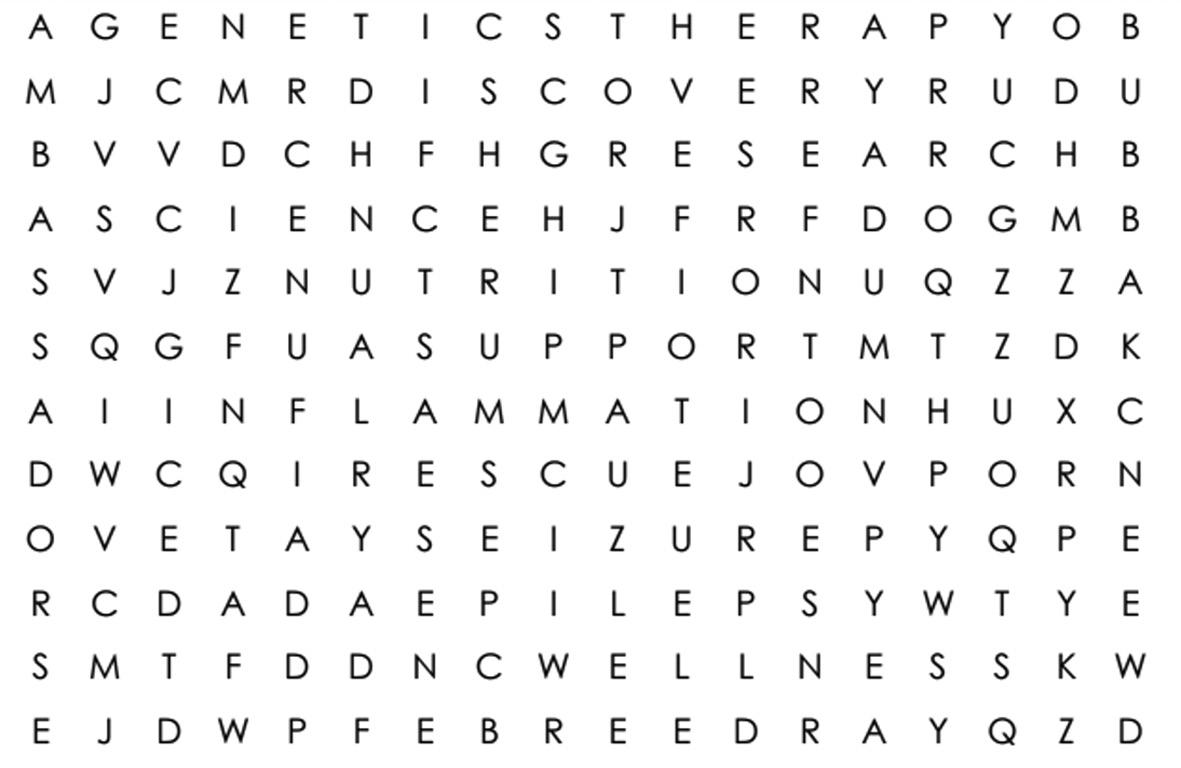
Support the AKC Canine Health Foundation to help find better treatments, more accurate diagnoses, and
understanding of the mechanisms that cause disease in dogs. Whatever your capacity to give, there is a way for you to help.